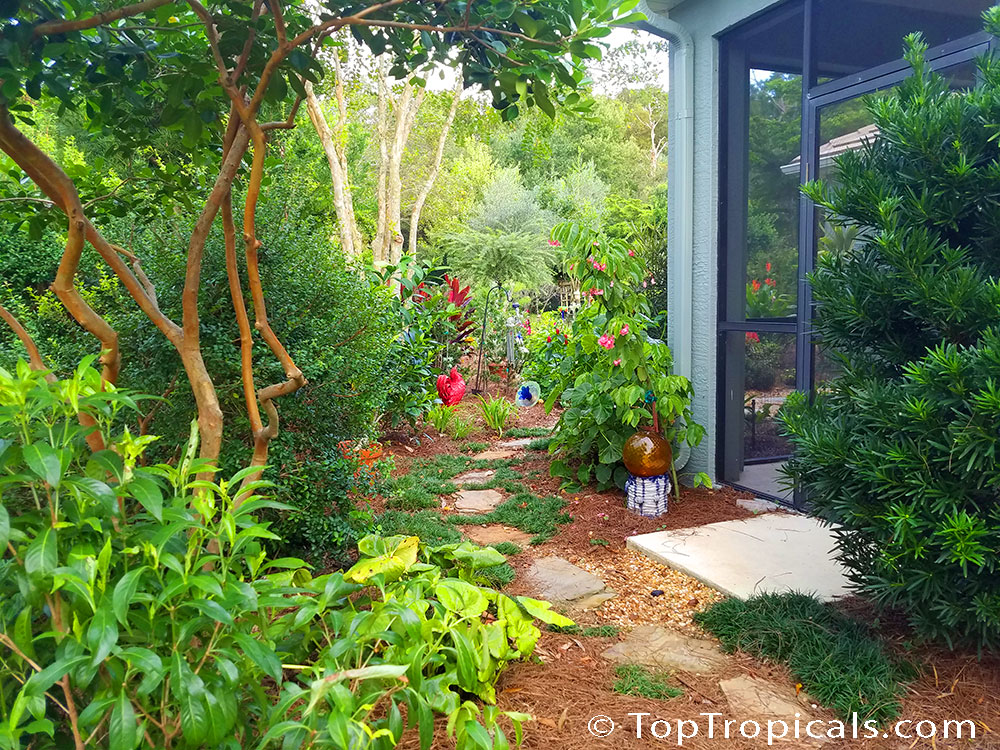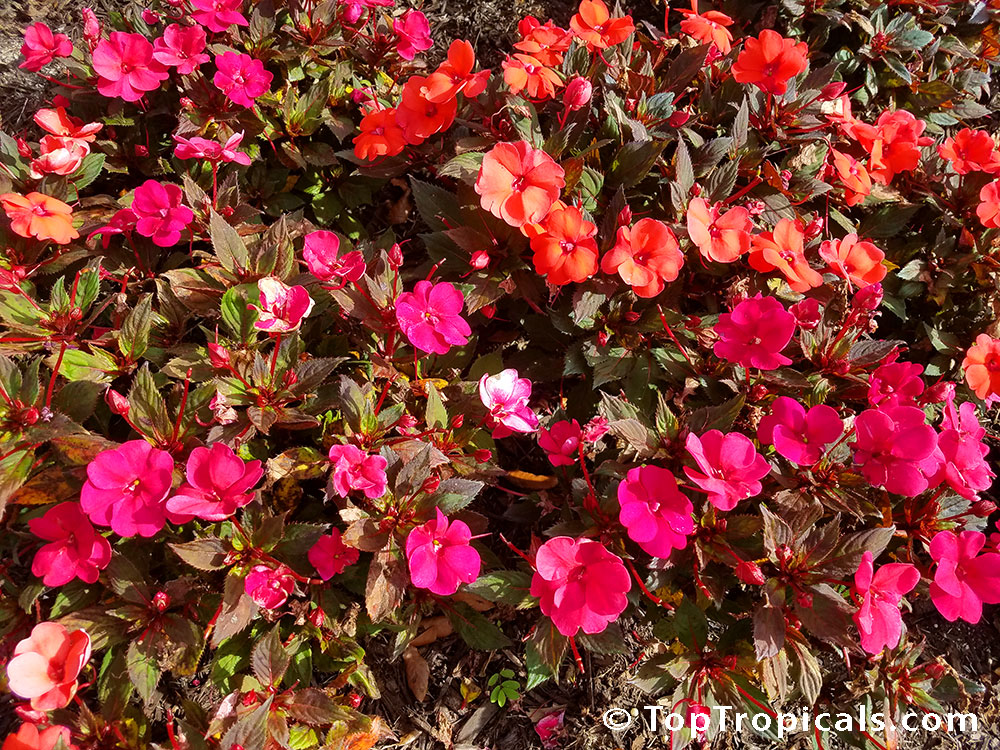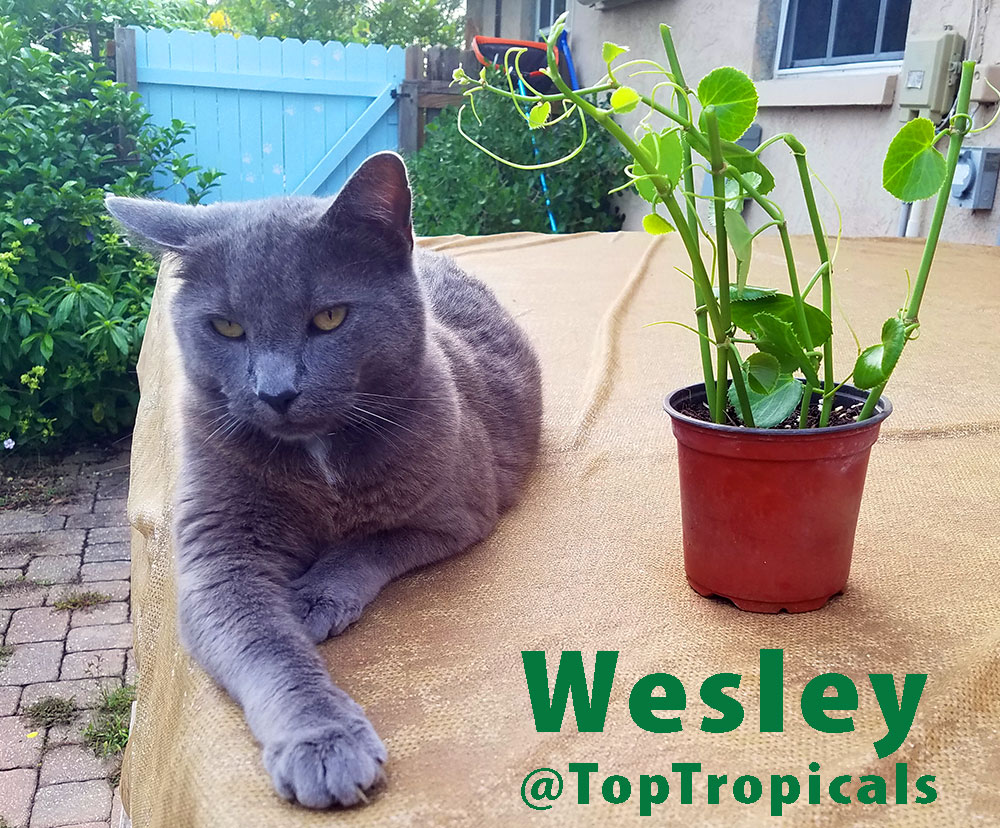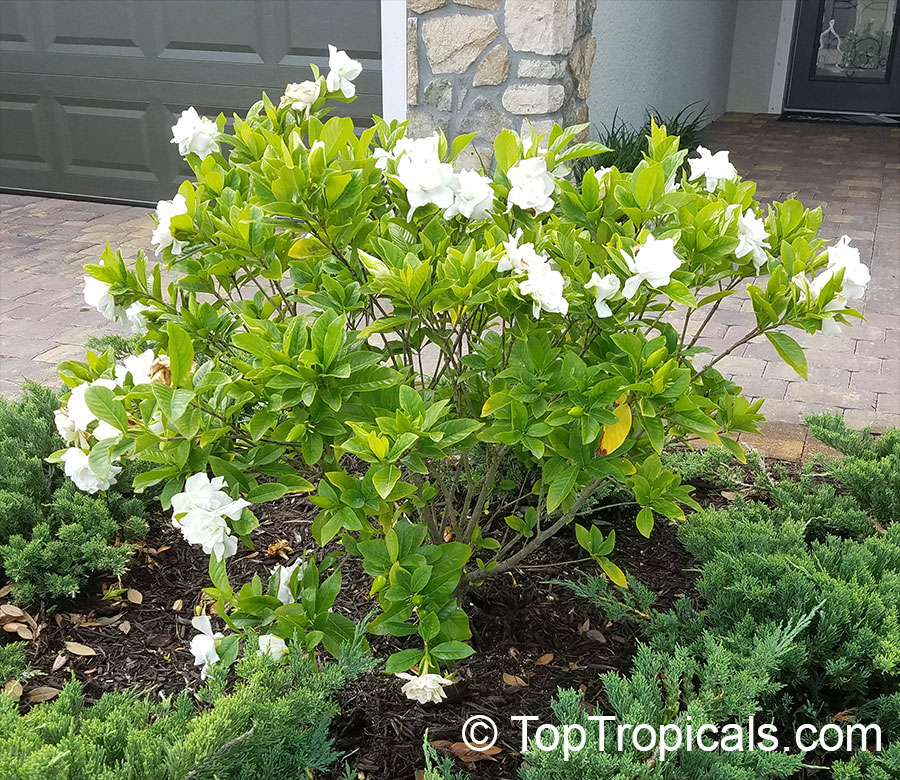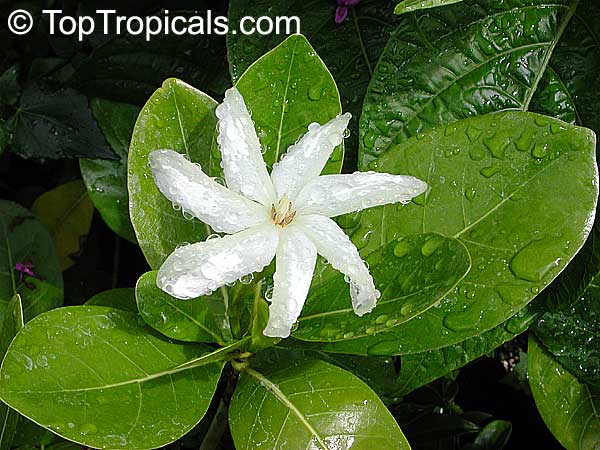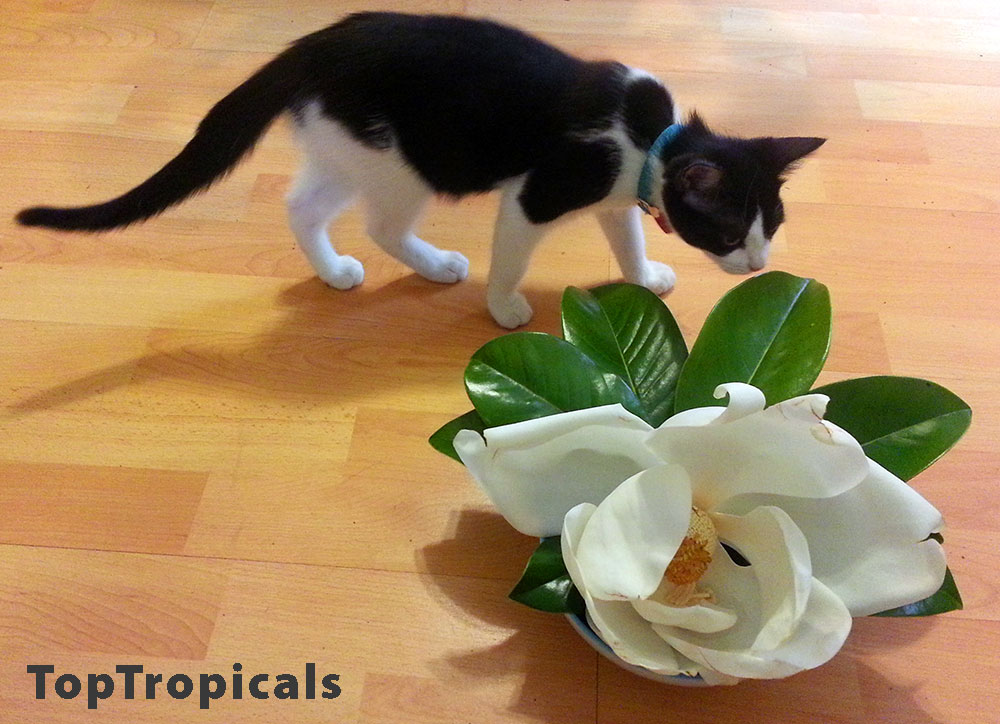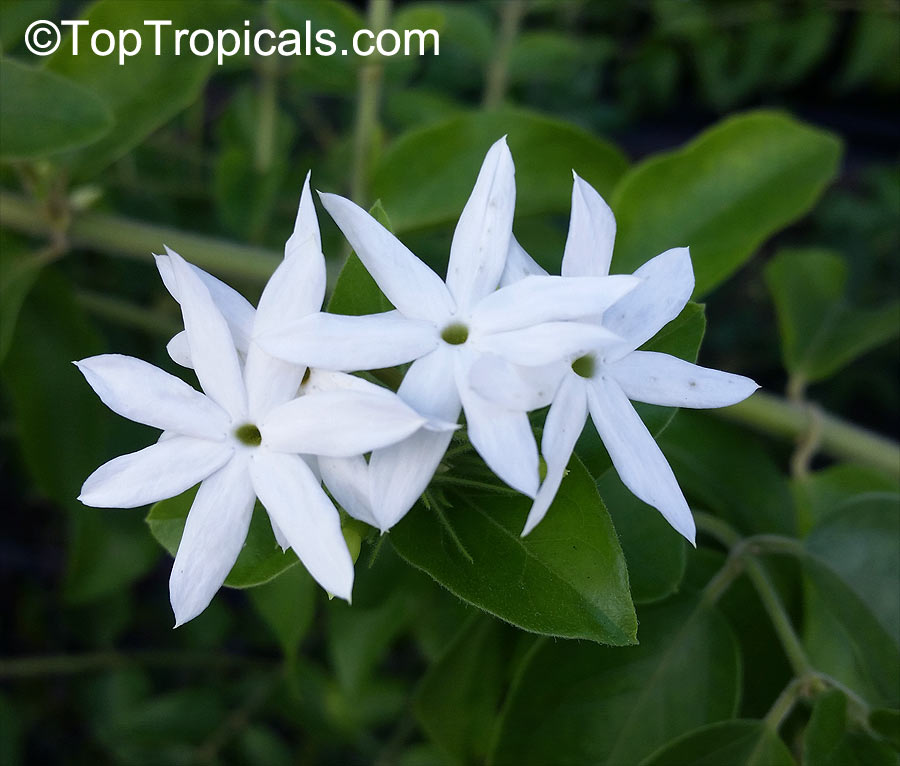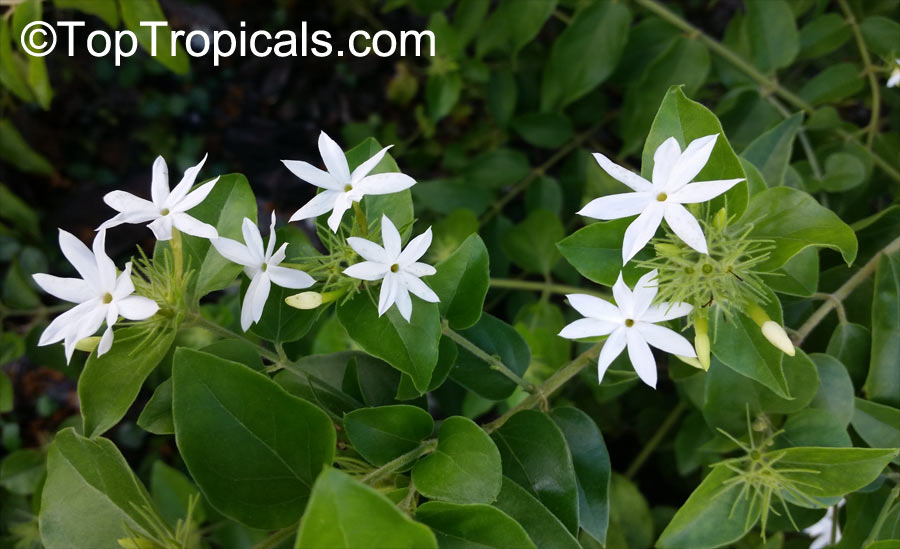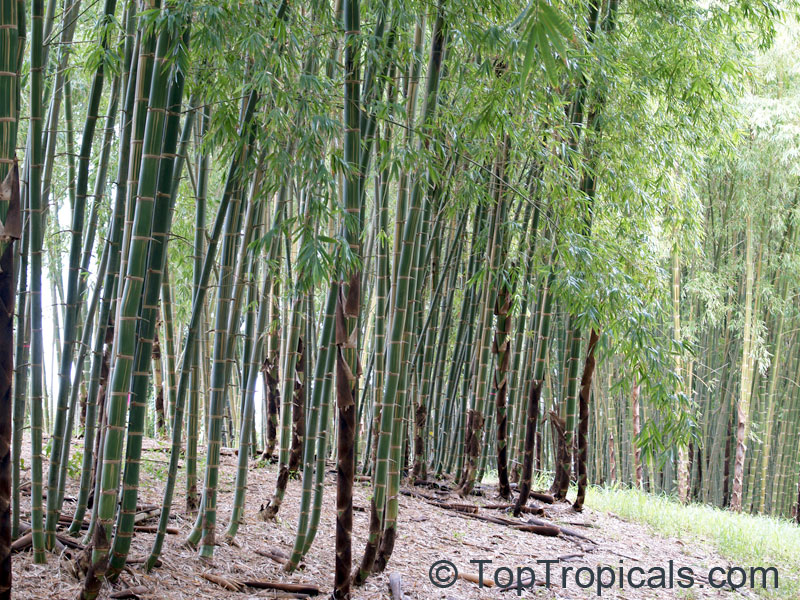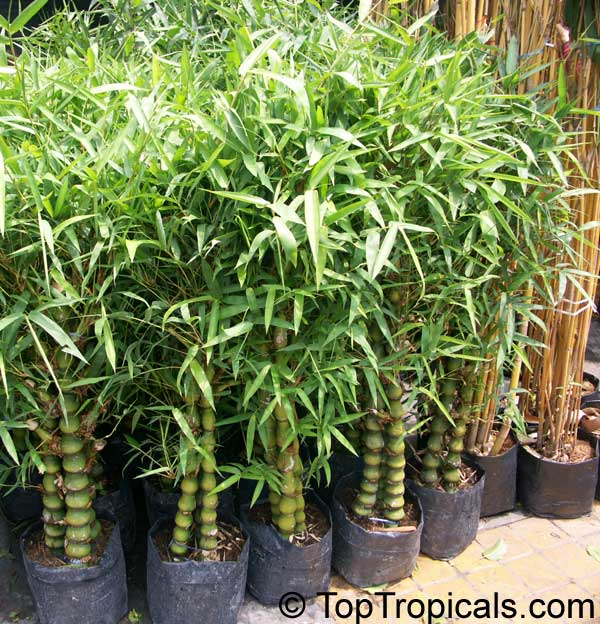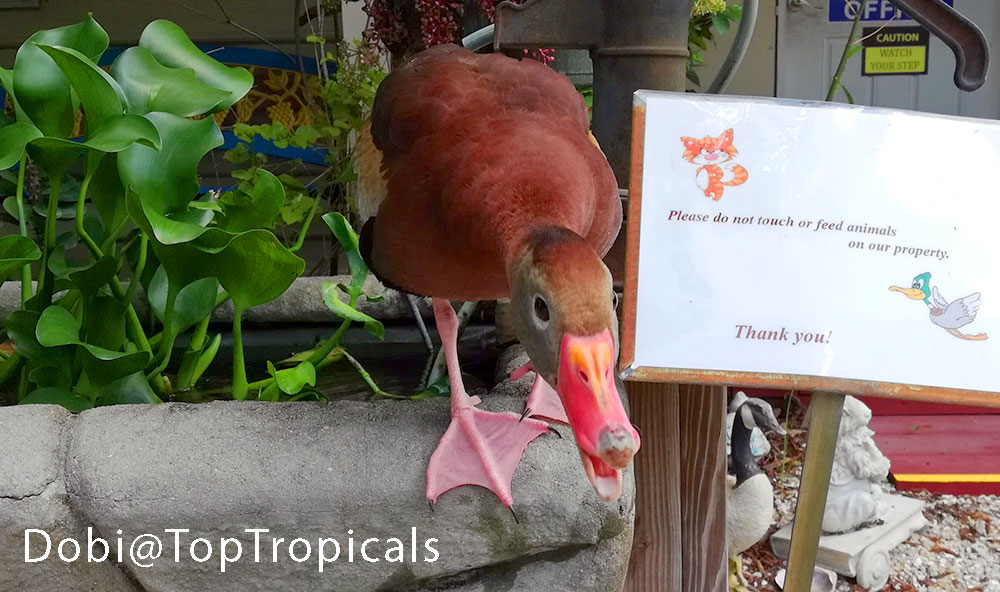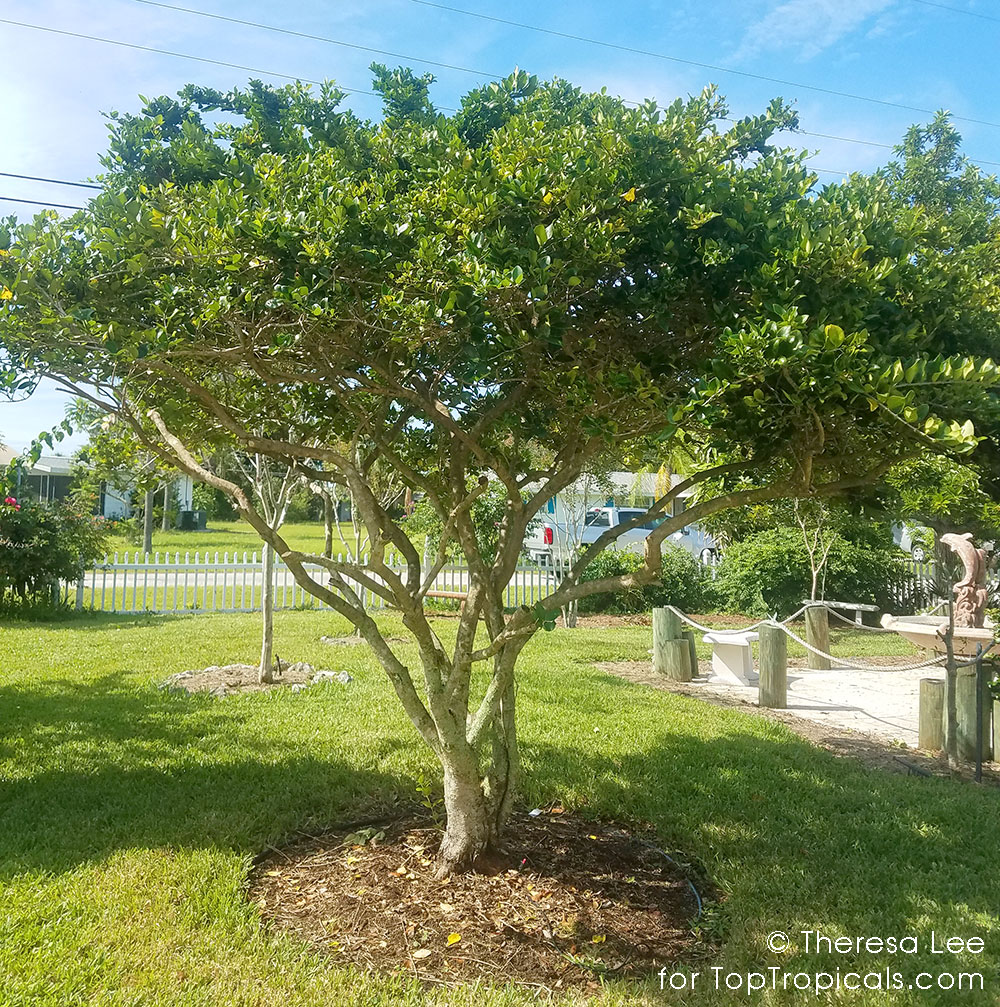Garden Blog - Top Tropicals
Date:
Fertilizing in Winter?
Q: I'm a bit confused about what winter fertilization schedule I should follow in South Florida. For blooming plants, usually, I use a monthly granular bloom booster fertilizer as well as a liquid fertilizer every 10 days or so. Should I continue that schedule in the winter as well? Should I stop fertilizing altogether in the winter? How about fruit trees? What fertilization schedule should I follow in the winter?
A: Here is a general fertilizing schedule for established plants that we follow here
in SW Florida.
The rule of thumb is, do not fertilize (with macro- NPK elements) when
minimum temperatures drop below 65F and stay at that level for more than 7
days. At this temperature point, most of the tropical and subtropical plants
slow down their metabolism and some of them going into dormancy. This means,
nutrients are not consumed as much as during active growth period, and built-up
nutrient supply within a plant plus whatever is available in the soil is
just enough to get by through the winter. So additional fertilizing is not
necessary. You may continue micro-element supplements and bio-stimulants
throughout the year. In fact, it is highly recommended to do so, to help the plant
survive cold spells. These are very effective tropical plant protectors:
SUNSHINE-Epi - Brassinosteroid plant hormone
SUNSHINE-Power-Si - Advanced plant protector with Silicon
SUNSHINE SuperFood - Complex microelement supplement
This rule is applied to both flowering and fruiting plants, in general. However, some species are winter-flowering and winter-fruiting. For those, you can make an exception and provide extra nutrients for flowering and fruiting, as long as the weather stays warm. During cold spells, avoid any NPK fertilizers and use only bio-stimulants and micro-elements. If you apply NPK during cold, it won't be consumed by a plant, build up in the soil, and may create a root burn situation.
In simple words, fertilize from March to October. Give plants some rest from November to February.
Date:
Meet PeopleCats of TopTropicals. Cat of the Day: Wesley (Vasiliy)
Vasiliy is Russian Blue. Everybody calls him Wesley. Wesley is Marco's twin brother. They both were found as little kittens in a box
that someone dropped off... right, under TopTropicals car.
Marco is long hair, and Wes is short hair, so Wes doesn't get a haircut
like his bro.
Although Wes is much bigger and fatter, he is not as brave as skinny Marco
who fearlessly spends his days at the front gate. Wes is afraid of Thunder,
Rain, and a Doorbell. So he is mostly hiding behind the scene... unless food
is on the table!
In the photo: Wesley Roll - bikini shot
Date:
Gardenia flowers: how to prevent bud-drop
Q: My gardenia looks beautiful, but the flowers fall off of it before they even open up, the majority of them get this brown color at their base. Can you point me in the right direction.
A: There are 3 possible problems, either one, or a combination:
1) Lack of light
2) Too much water
3) Lack of micro-nutrients in soil
Try the following treatments:
- micro-elements SUNSHINE-SuperFood as foliar spray + drench rootball,
once a month, it will improve quality of the flowers.
- Silicon protection: SUNSHINE-Power-Si. This supplement has Silicon as
an active element (Si). Adding it to soil or/and over foliar spray can
immensely enhance plants' resistance to external factors and boost their growth and
health.
Make sure the soil is not soggy, reduce watering especially during
fall/winter.
Date:
Meet PeopleCats of TopTropicals. Cat of the Day: Lil-S*
You know how it is, cats are like potato chips, they can't be just one.
And they come to you, they adopt you. They always pick the right people.
Every one of them has a story of their appearance.
Lil-S* came from a car engine. One cold winter morning of 2013 when we
were about to start a car... lil "meow" squeaked as a warning... Thank God
the engine wasn't started. She was hiding from cold under the hood right on the
engine, probably still catching some warmth from it... She was 4" size
kitten that fit in a palm of your hand... And she always has been a handful!
That's why we named her Little Sh*t.
Lil-S* likes to hang out with Marco in front of TopTropicals gate, greeting the customers.
Date:
Fragrance of Angel Hair Jasmine
Q: I got angel hair jasmine, it started flowering, but it does not have any smell. What can be done?
A: Jasminum pubescens - Angel Hair Jasmine has very fine fragrance. It is
not as strong as some other jasmines like Sambac for example. However flowers do have a sweet scent especially in
the early morning hours, as long as the plant is well-established, grows in
a warm and humid environment. Keep in mind that flowers on young small plants
that do not have a developed root system, may not be as fragrant as on
mature vigorous specimens. Also, this jasmine needs a full sun location and
regular fertilizer for profuse flowering.
We recommend the following fertilizers to boost flowering energy:
- Pink N Good Daily Plant Food - Flower Booster
- Plumeria Top Dress - Smart-Release Booster
Use microelements at least once a month to improve plant vigor and quality
of flowers
Date:
Meet PeopleCats of TopTropicals. Cat of the Day: Marco
Cat of the Day: Marco
When you visit TopTropicals Garden Center, the first Purrrrson that greets you will probably be Marco. He likes to chill out right at the parking lot under the shady oak!
Marco is a long-hair Russian Blue, and it is too hot for him in Florida. So he gets a fashionable Lion Cut every couple of months!
See more PeopleCats of TopTropicals
Date:
How to fertilize a bamboo?
Q: When do you fertilize new bamboo trees and can you use the same fertilizer you use for mango trees?
A: Bamboo is a tropical to subtropical plant with growing season
year-round. You can start fertilizing it right away with the exception of colder
months when temperatures drop below 65F.
Mango fertilizer is formulated for fruit trees, so bamboo won't benefit
from it. Bamboo is not a fruiting plant and is not even cultivated for
flowers. Its beauty is in healthy green foliage and beautiful stems. So you will
need foliage-type of fertilizers for it.
We recommend the following fertilizers for bamboo plants:
Tropical Greenhouse Plus - Plant Booster
Tropical Allure - Smart-Release Booster
Remember to always use micro-elements that are essential for every green plant.
Date:
PeopleCats of TopTropicals: Shipping Department cat - Lady Bug
We have been getting many messages from customers saying they really love the postings of our Cats and Dobi Duck... and they want more updates. So we decided to open this new section for the animal fans.
As you well know, TopTropicals is not just a plant Nursery. Like most of the gardeners and all Cool Plant People, we love our pets and we have many of them here, enjoying the Garden. Our cats and the Duck are members of TopTropicals Team. They help customers, participate in packing plants, and of course keep the nursery mice-free. As employees of the marketing department, they get their paychecks, free lunches, and other company benefits like full healthcare coverage and stuff... They are taken care of by TopTropicals Shipping Crew every day: whether its a meal or taking a medicine, it's all scheduled in our daily task list!
This First Issue of PeopleCats Fan Club is dedicated to our Shipping Department cat - Lady Bug. Originally she came to our nursery 3 years ago in a box with her other 3 baby brother-sisters and they just opened their eyes. Someone dropped the box with the litter at our gate... guessing this is the Good Place! When Lady Bug grew up, she became a Shipping Department Supervisor, helping Chief the Cat to manage plant shipments.
Lady Bug went missing a few days ago and all our team is crying for her. We are praying she is OK. We miss you, Lady Bug! Please come back and bug us again!
As a friendly reminder to our local walk-in customers: you are welcome to visit TopTropicals ZOO, just please do not feed or pick up the animals! Some of them are of old age, have special needs or special diet. All our pets are friendly, however, we ask you to please do NOT pet them. They work hard all day long and may have their own rules and emotions.
Date:
Shaping a tree and regrowing branches
Q: I have been so worried about the beautiful ligustrum on my property since my husband decided to "prune" it 2 days ago. He removed about 20 branches from the tree and completely altered the look of the canopy which was so full and lovely ðŸ˜. Please advise me if there is anything I can do to help this tree. Will any of the branches grow back? Will the canopy return? It looks practically bare to me now.... so heartbroken. Any advice and reassuring would be greatly appreciated.
A: The good news is, the tree will regrow new leaves and will
branch out. The question is, how soon. Ligustrum is pretty slow-growing species
and it may take a while until it gets to the shape that is close to the
original.
On the other hand, pruning is beneficial almost for every plant, it
promotes new growth and bushy shape.
So do not panic, your beautiful tree has good chances to become even
prettier.
To speed up the process of re-leafing and promote healthy new growth,
we recommend the following:
1) Provide extra watering, assuming you have a sprinkler system that covers the yard. Water additionally 1-2 times a week using a garden house, for 1-2 minutes, saturating the soil around the tree and up to a drip line.
2) Apply the following fertilizers:
Tropical Greenhouse Plus - Foliage Booster
Tropical Allure - Smart-Release Booster
3) In addition to fertilizers, we recommend these 2 supplements that
will enhance effect of fertilizers and make re-grow process even faster:
SUNSHINEâ„¢ SuperFood
SUNSHINEâ„¢ HumiHum - a natural humate vitamin for plant
4) Mulch well around the tree, keeping it 2-3" away from the trunk
This should help to get your tree back in shape!
Date:
Fragrant Pakalana Vine - a delicious meal?
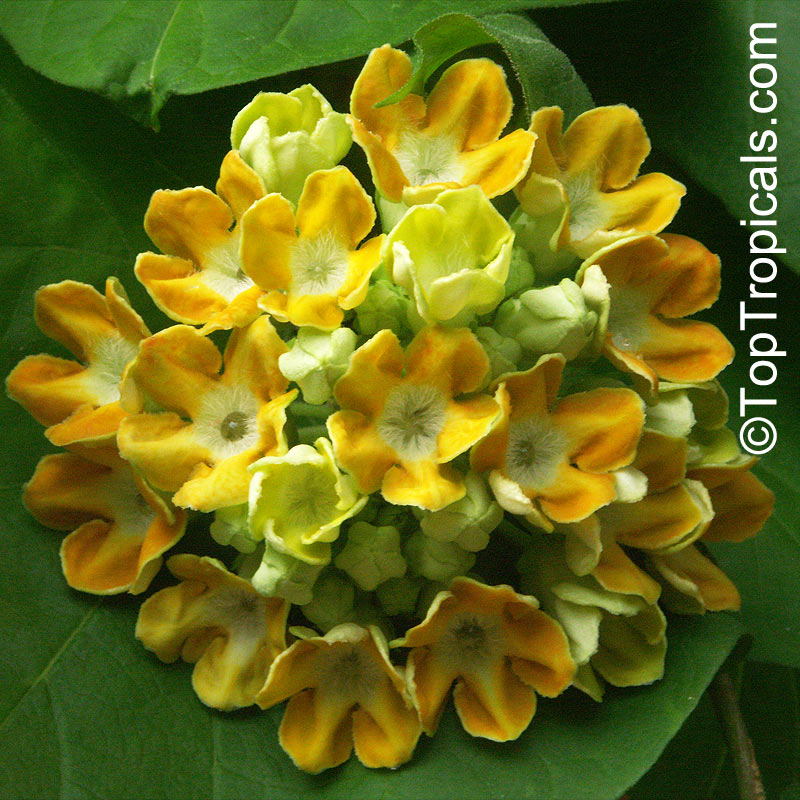

Q: I visited Thailand recently, and enjoyed a wonderful stir fry made with Cowslip flowers. I would love to grow it myself. I need this vine in my life! Do you have them in your inventory and if so, will I be able to grow it successfully here in SW Florida?
A: By Onika Amell, tropical flower specialist.
The extremely fragrant Telosoma cordata has many names: Cowslip
Creeper, Pakalana vine, Tonkin Jasmine, Dok Kajon, or Chinese violet. It is a very
sought after rare tropical fragrant ornamental, but not everyone knows that
this flower makes a delicious meal!
The flowers have a lovely lemon-like fragrance and can be found in
South East Asian food markets. It is typically fried with eggs to make omelets or
stir-fried with tofu or pork and beef. Young leaves & flower buds can also
be eaten fresh (in a salad) or battered & fried. Not only are the flowers
delicious, but they are chock and block full of carbohydrates, proteins and
vitamins A and C.
An old Chinese tale tells the story of the mystic, aromatic powers of
the Pakalana vine...
